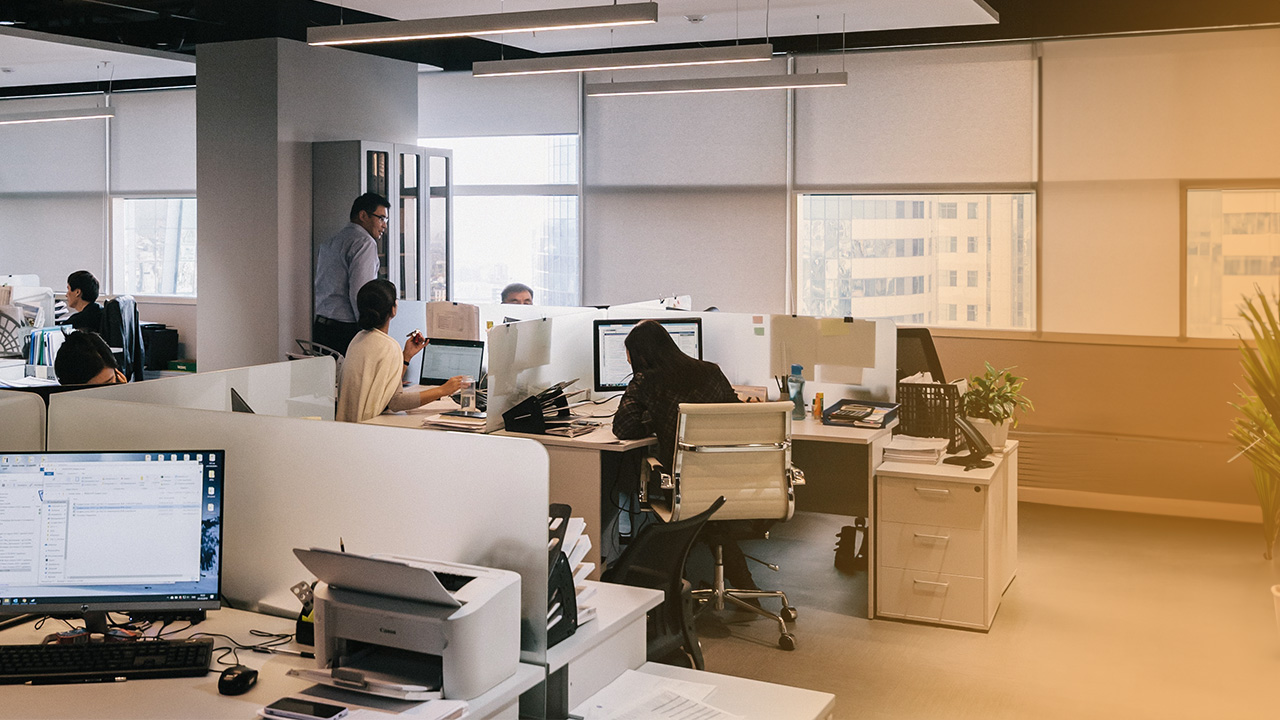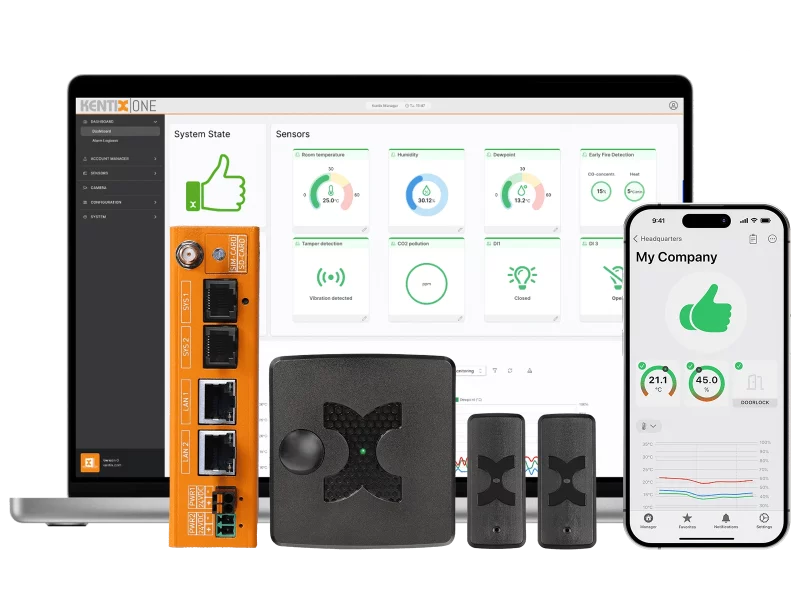We spend a lot of our time in the office. This is where we work, meet with customers and discuss important business matters. But how safe is our workplace really? Access control, video surveillance and alarm systems are important factors in ensuring office security. We will show you what measures you can take to protect your office from break-ins and theft and how modern technologies can help.
Access control in the office: how to protect your company from uninvited guests
When it comes to the security of the company, it is important that you take various measures to prevent unauthorized access. An access control system regulates access to certain areas of the office building. For example, that only employees have access to sensitive data or that visitors must log in before entering the building.
Access control is implemented in various ways. One option is to issue key cards or codes only to authorized persons. Biometric processes such as fingerprint scanners are also used. It is important that the systems function reliably and react quickly in an emergency.
It is important to note that access control is not the same as access control. The latter is about who has access to which information – i.e. who is allowed to view or process which data. Access control should also be part of the security strategy and is implemented through different authorization levels in the IT systems.
Access control in the company: when does the works council have to give its consent?
When it comes to office security, the introduction of access control may be necessary. But does the works council have to agree to this? Basically, access control is a measure for monitoring and controlling people. This is therefore a matter subject to co-determination pursuant to Section 87 para. 1 No. 6 BetrVG.
This means that the employer must inform the works council before introducing an access control system and obtain its consent. A works agreement helps to establish specific regulations and facilitates cooperation between the employer and the works council. This defines, for example, the type and manner of control or data protection provisions.
In any case, however, it is important to protect the personal rights of employees and only carry out access control to an appropriate extent. This ensures both operational security and privacy protection.
Is video surveillance allowed in the office?
The question of whether video surveillance is permitted in an office is one of the most important questions that companies have to ask themselves. The largest part of data protection and employee rights concerns video surveillance: Which areas of the office may be monitored? How long can recordings be stored? How much information can a company store about its employees?
In principle, every company must note that video recording is only permitted in cases where it is expressly prescribed by law or regulation. Most companies therefore opt for a camera in the entrance area of their office. These cameras are usually programmed so that they are only activated when certain events occur, thus protecting the privacy of employees.
Care must also be taken to ensure that data is only collected and stored for a limited period of time. It must also be clear what information is collected and stored. For example, it must be ensured that no personal data is collected and stored.
Access control and video surveillance in the office and GDPR compliance
The obligation to comply with the General Data Protection Regulation (GDPR) is a serious matter. Companies must ensure that they comply with the principles of the GDPR when it comes to processing personal data. One important aspect of this obligation is access control in the office.
First and foremost, companies have a duty to ensure the privacy and security of all employees. This means that companies must implement strict access control procedures to prevent unauthorized access to private information or rooms. By introducing an access control system in the office, companies can ensure that only authorized persons can access certain areas of the building.
Such a system also allows companies to ensure that personal data is only processed by authorized personnel, thus ensuring GDPR compliance. In addition, most modern access control systems can be programmed to comply with all data protection guidelines. Of course, this also applies to all our Kentix products.
Physical security in the office
Open doors and windows as a burglary risk
Open doors and windows are a primary gateway for thieves. If office buildings and offices are not secured, there is a risk that burglars can easily break in. It is therefore very important to protect the office building and the office with modern security systems to prevent unauthorized access.
One of the best ways to achieve this is to keep all doors and windows closed at all times. There are also many modern security technologies such as alarm systems or video surveillance systems that offer another layer of protection. These systems react to open doors or windows as required and help to ward off potential intruders.
Early fire detection
Early fire detection systems are an important part of fire protection in every building. They make it possible to detect potential fires at an early stage and alert the people affected so that action can be taken quickly. Such a system offers many advantages for the office (more on early fire detection here).

